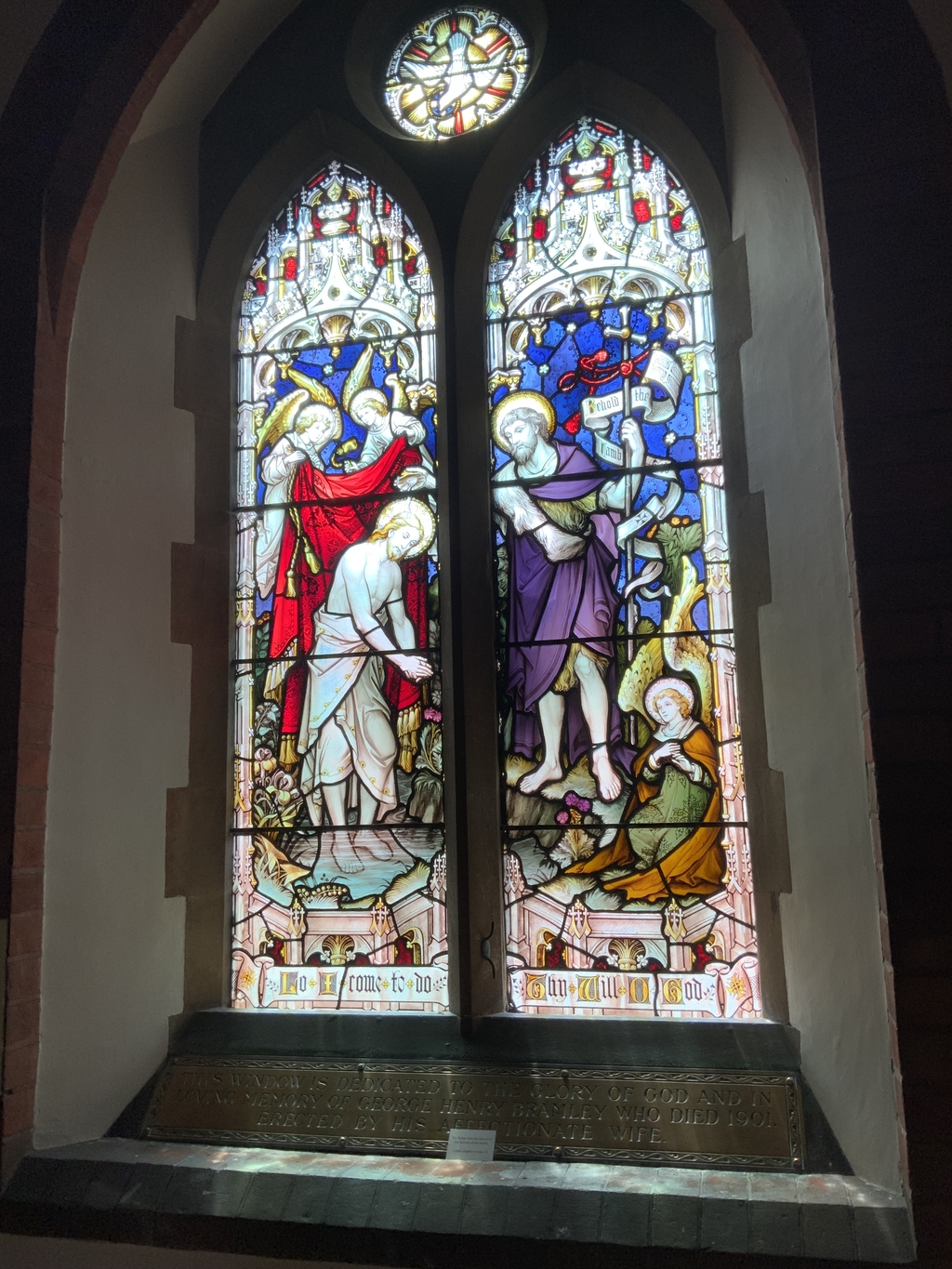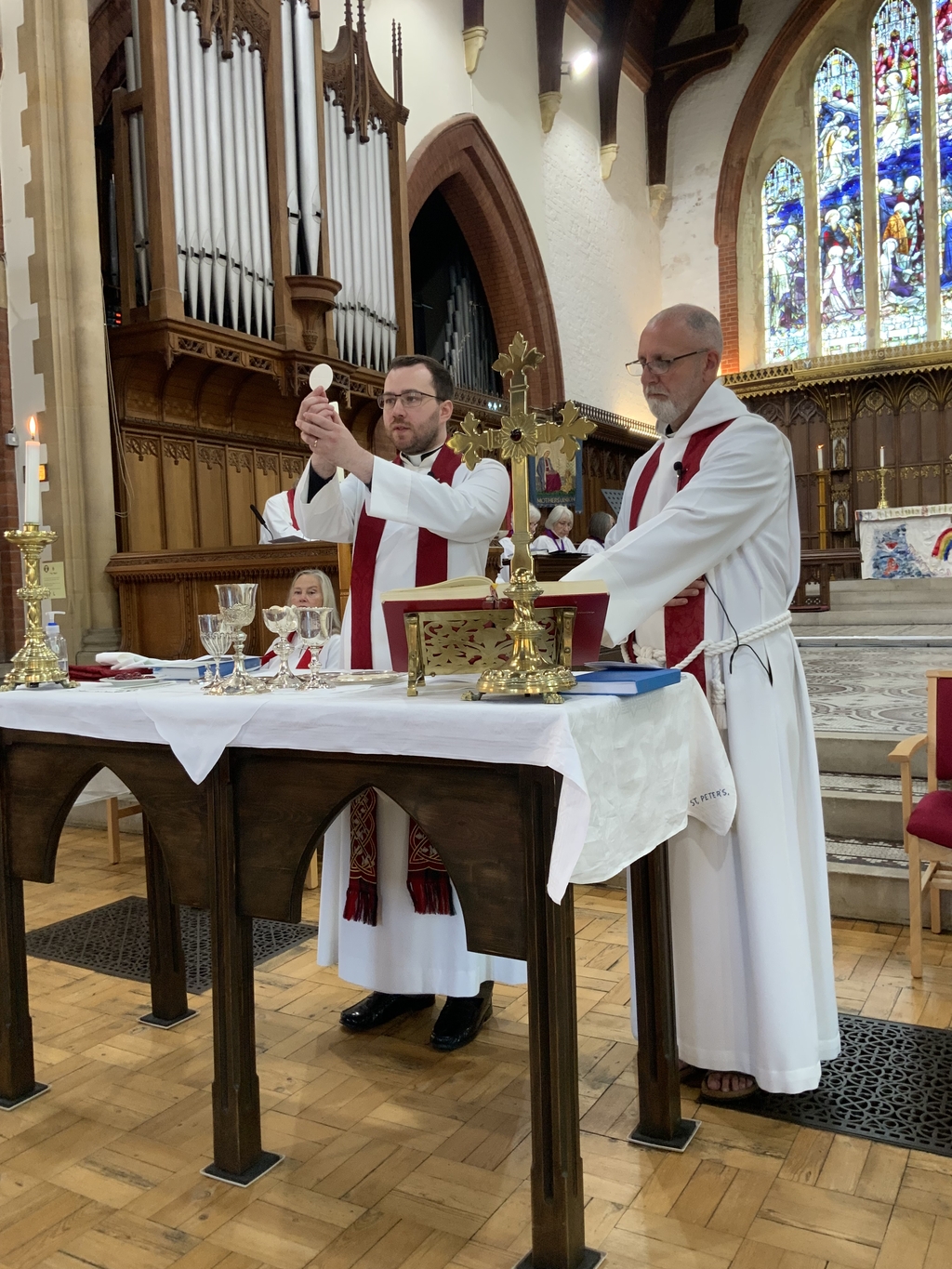This week we remember John Bunyan, the writer of ‘The Pilgrim’s Progress’ on the anniversary of his death in1688.
A Cromer man decided to go on a pilgrimage over an Easter weekend. He wasn’t very fit, so he didn’t want to go too far. He thought he would go to the top of Beeston Bump, knowing that the cross was erected there on Good Friday. Some of his family and friends said they’d go with him, for the walk.
They started off along the beach. It was easy walking on the firm sand but there were some rocky patches to negotiate. When they reached West Runton they stopped for refreshments, then they took the clifftop path towards the Bump. The man was struggling. It was a harder and longer trip than he thought it would be. By the time they reached the foot of the hill he was exhausted.
There is an easier path, around the Bump. His family and friends decided to take it, and tried to persuade him to do the same. They were focussed on getting to Sheringham, of course. After all, they could see the cross from where they stood - there was no need to climb the hill or to go any closer. But the man recognised the significance of the cross, and he wanted to draw closer to God. It was the purpose of his pilgrimage.
He put his own discomfort and the desires of his loved ones aside, climbed to the top of the hill, kneeled before the cross of Christ and prayed. A few came with him, but the others took the easy route. When he stood up and looked around, the man was exhilarated at the wonderful outlook. It was well worth the effort.
Our spiritual pilgrimage isn’t smooth. We might be unfit to start with. We often meet with rocky patches, need to stop for refreshment, find it hard going, and wonder whether we can make the climb to follow Christ up the hill to the cross, sometimes having to part from others to do so.
Jesus wasn’t telling anyone to hate their families and friends, he wanted everyone to love one another. Nor does he want us to be destitute. In this context, he was stressing the importance of focus on God, of putting everything else aside if necessary, of hating anything that gets in the way - so that we put being disciples of Jesus first, whatever the cost to our own comfort or the desires of other people, even those close to us.
In my own experience, the more we’re ready to give up as necessary as we live day by day in service as followers of Christ, the more God ultimately blesses us, but we should never have that as our motivation. Rather, the love of God is our purpose.
Paul reminded Philemon of that in his letter.
“I preferred to do nothing without your consent, in order that your good deed might be voluntary and not something forced” he said, in the example of Christ. We’re invited to love and serve God. We can never force somebody else to do the same, nor should we try to. We simply share the invitation.
Our relationship with God is more important than anything else, and yet we’re often so distracted by other things that we neglect to draw near to God each day. We know that we have stronger relationships with people we see every day than those we see infrequently. Yes, we can keep up with people at a distance to some extent, but the less we speak to them the more distant our relationship becomes. God is always there, waiting for us to draw near, ready to bless us when we do. We don’t have to walk to the top of Beeston Hill - we can pray, join others in worship, share in communion, read the scriptures, think and read about theological issues, do good works, and share our faith in God.
Earlier in Paul’s letter we heard the encouraging words: “I have indeed received much joy and encouragement from your love, because the hearts of the saints have been refreshed through you, my brother.” Let’s encourage one another. Let’s refresh the hearts of the saints all around us by sharing the teaching and example of Christ, brothers and sisters. As we remember John Bunyan, let’s be valiant pilgrims, making progress together.
May the grace of the Lord Jesus Christ be with our spirits. Amen.
Julie Rubidge, Lay Minister











